My Favorite RPGs
July 12, 2004 - Games
I happened across IGN's Top 100 Games of the 20th Century recently, and couldn't help but think of my own favorite games - most of them are RPGs. So for that reason I won't be listing a number of non-RPG games that I enjoyed quite a lot. No fighting games like Double Dragon 2, Street Fighter 2, and World Karate, no first-person shooters, real-time strategy games, or puzzle games.
My first gaming system was an Atari 2600, but aside from Adventure, there were no real RPGs available for that system. After that I got a Timex-Sinclair ZX81 and an Atari 800XL, but neither one had so much as a disk drive for me to play games. The first personal computer I had with which I could play any type of game was the beautiful Commodore 64, for which I will always hold affection. Due to the popularity of the machine, and the fact that you could copy games, I'd soon traded software with a number of friends, and had well over a hundred games. Many of my all-time favorite games were on that system.
Originally, I'd planned to rank these games, but in the end, I couldn't bring myself to do it. They're all too damn good. So I'm settling instead on games I've completed. Note: oops, I never completed Autoduel. Oh well.
- Fallout 2 (PC)
- Ultima V (Commodore 64)
- Resident Evil 2 (Playstation)
- Wasteland (Commodore 64)
- Baldur's Gate (PC)
- Castlevania: Symphony of the Night (Playstation)
- Pool of Radiance (Commodore 64)
- Autoduel (Commodore 64)
- Bards Tale 3 (Commodore 64)
- The Legend of Blacksilver (Commodore 64)
- Dark Earth (PC)
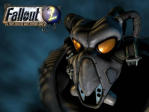
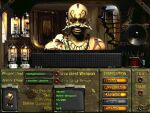
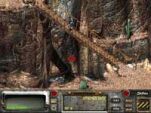
Both of the Fallout games are phenomenal, but I'm citing the second simply because it's a bit better than the first. Inspired by the old-skool game Wasteland, and written (I believe) by some of the same folks, Fallout takes place in a post-nuclear holocaust. The living consist of scattered tribes of humans, a few small cities that have held on to civilization, and a variety of mutants living in irradiated areas. You begin by wielding knives and/or spears, and perhaps a pipe gun if you're lucky. Soon, you get pistols, sledgehammars, metal armor, and eventually energy weapons. Equally important to combat abilities are diplomacy, bartering, perception, and stealth. And Fallout takes the same twisted sense of humor that Wasteland had. You can talk a certain young farmgirl into slipping into bed with you, but her father catches you in the act while you're unarmed and unclothed, and forces you into a literal shotgun wedding. Fallout also boasts the only characters who have genuinely intimidated me while I was playing. The graphics and sound aren't eye-popping, but the stories, humor and subplots more than make up for it.


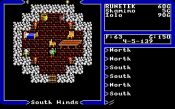
I've only ever played the first six Ultimas. The first was exceedingly simple and winnable in one sitting. The second was just plain bizarre. The third was very good, but very difficult - when a character died, you had to rush to pop out the floppy disk before it could save that character's death. Ultima 4 was the best yet, but I never had the determination to finish. And Ultima 6 I never had the chance to play for more than an hour or so. But Ultima 5 was a masterpiece.
There were tactics, since you could move your men around the battlefield into different positions, something I'd only ever done before in Pool of Radiance, and this was the first game I've ever seen use cone-shaped attack spells. Very cool. You had to purchase food and spell components, and mix the components for spells in the correct proportions, which was tedious at times, especially since the rarer components had to be found rather than bought, but it was all part of the fun.
It probably took me over a year to complete this game, and I felt a real sense of accomplishment when I did. The storyline was complex and nonlinear, something most games didn't have at the time. Should I attempt to follow the path that Lord British took down a river, into a whirlpool, and into the underworld? Or should I hunt for the mountaineering gear so that I can hike to the very stronghold of the Shadowlords to attempt to retrieve his scepter? Or maybe I should infiltrate the castle of Lord Blackthorne. The number of quests and goals were vast, and there was no computer-kept journal to track them for you. You had to learn passwords to open the entrances to each of the eight dungeons, you had to learn mantras and find runes to meditate at each of the eight shirines (once you found them) and you even had to play a musical piece on Lord British's harpsicord using the numbers on your keyboard in order to open a secret door. It was a phenomenal game.
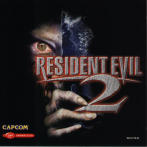
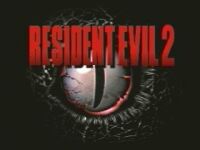
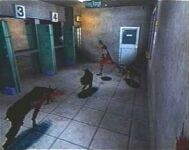
This was the first Resident Evil game I'd ever played, and to this day I still feel that it's the best. This game was more complex than the original Resident Evil, and had a purity that Resident Evil 3 had somehow lost.
You could play as one of the two characters, and while the puzzles they each had to solve and the steps they had to go through were similar, they followed different storylines and picked up different weapons.
But the best thing about the game was the startle factor. No other game has ever scared me so much. I would play late at night with the lights off, and when I was in a silent room and a group of zombies smashed through a glass window or leaped around a corner, I'd jump right out of my seat.
The one thing that Resident Evil 2 had that made it so much better than the original Resident Evil was the second mission. You'd begin playing and find that it seemed identical to the first mission. Sure, you could find new uniforms for your characters, but other than that, it was no different. Until about 25% through when suddenly something new happens and there's a new creature in the house, chasing you around as you go about doing what you need to do. That creature, a massive football-player looking zombie in a trenchcoat, and the ways in which he attacked you and chased you from room to room, made the second mission so much better than the first. Even the music that would accompany his appearances became fear-inspiring. I hope I get a chance someday to pull out the Playstation and replay this game.
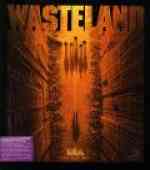

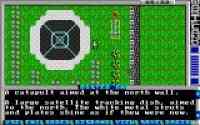
This is one of the few truly old-skool games that's fun to go back and play from start to finish even now. I did so a few years ago, and it was as fun as ever. There's a reason that Fallout did so well - because Wasteland had so many devoted fans. There are still plenty of Wasteland fan sites out there.
Wasteland was a game that you could play entirely from a floppy disk if you had no hard drive. It took the top-down view of the Ultima games, and combined it with the scrolling battle view and creature pictures of Bards Tale. The result was that you could maneuver strategically, hiding some characters behind walls, having others end up 32 feet from the enemy rather than in strict 10 foot increments as in Bards Tale. It was a beautiful setup.
The twisted humor later shown in Fallout was in full effect here. Towards the beginning, a small boy asks you to find his lost dog. If you look, you can find the dog, who is rabid and attacks you, forcing you to kill it. When you return to the boy, he somehow knows and attacks you, shouting "You killed my dog, you bastards!". So you're forced to kill the boy, whose slingshot is somehow a very formidable weapon.
The game is challenging throughout, and you learn skills ranging from Brawling to Toaster Repair. One of my favorite aspects is that melee warriors were so incredibly effective. If you had the proton axe, you could carve your way through nearly anything, although that Scorpitron was incredibly tough. And in what other game can you battle enemies such as "Vanadium Vulture", "Fusion Octotron", "VTOL Auto-fire Robot", "Stainless Steel Flechette rifle", "Sonar-targetted Proton Carbine", "Gauss Needle Projector", "Mk 10 Turbo Meson Cannon", "Wire-guided Anti-personel Missile", and "Life-seeking Flamethrower"?
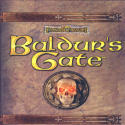

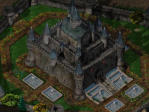
If you've been playing RPG games on the PC for any length of time, I probably don't need to tell you much about Baldur's Gate. The game revolutionized computer RPGs. It was so intricate and so massive in scale that the only game that's come close since was its sequel. I'm actually planning on replaying the original Baldurs Gate game soon with my wife on multiplayer, just as soon as we finish Icewind Dale 2.
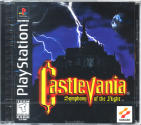
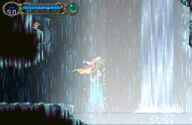
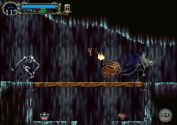
I've been a huge fan of the Castlevania games ever since I played Castlevania 3 on the NES, but I have to admit that some of the Castlevania games are better than others. Symphony of the Night stands out for its incredible music, for the magic system that incorporates street-fighter-like joystick movements, and for the huge variety of weapons, armor, shields, and other items you can aquire over the course of the game. You can even pay the librarian to reveal the weaknesses of certain bosses you might have difficulty beating. What? She's vulnerable to cold damage? That's good to know - I'll pull out the frost sword and a few ice bombs.
Throughout the game, you can watch a meter that will tell you what percentage of the game you've completed. There are plenty of secret doors, and some are concealed quite cleverly underwater, or beneath floors that can only be destroyed by executing a well-timed dodge against an exploding barrel thrown by a monster, so that the barrel takes out the floor, opening a new passageway. As I neared 100%, I began to grow sad, since the game was so good. Imagine my surprise when I found that atop the castle lay a second, inverted castle! The game has 200%!
As you progress, items will let your vampire character change into a bat, a wolf, and a cloud of mist - all very helpful for different situations. The environments, scenarios, and backgrounds are as interesting and challenging as in any Castlevania I've seen. The game is hard to find, but if you can get it, play it.
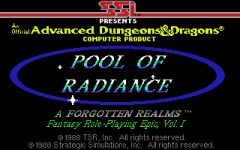
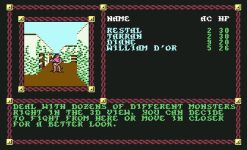
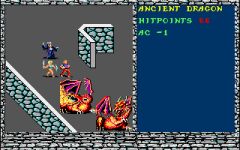
Another old-skool game, and the first of what later became known as the "gold box" games. Pool of Radiance was the first Dungeons and Dragons game to make it big for the PC. The battles took forever to load on my 1541 disk drive - I'd usually go to get a snack, or flip the channel on the TV I used as a monitor until it was done.
There were plenty of other shortcomings too - why are the people in the bar fights equipped like soldiers in the middle of a warzone? How can a populated city exist in the middle of so many monsters? But these were easy to overlook, since the game was so much fun.
I loved exploring the different areas of town, positioning my men just right to throw a lightning bolt down a row of orcs or a stinking cloud at a clustered group of ogres. I have very fond memories of this game.
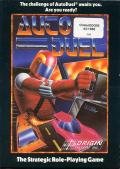
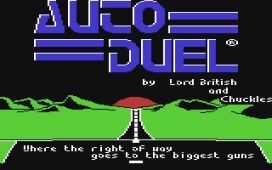
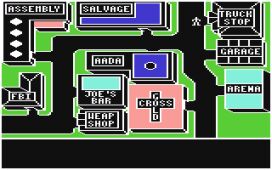
Autoduel was a beautiful translation of the Car Wars tabletop game. It fell a bit short in the graphics department, but that mattered little in a game where you could purchase and customize your own car, picking different body types, tires, engines, and armors for 4 sides of the car plus the roof and undercarriage. The weapons for cars were incredibly diverse, and included the simple machine gun, recoilless rifle, 1-shot rockets, flamethrowers, smokescreens and oilslicks, mines, spikedroppers, and even lasers. These could be front, side, or rear-mounted, and you could switch between weapons during combat so as to drive alongside an enemy while shooting at him, or hit him while he was chasing you. The available options were awesome.
You could begin in the arena, winning cash in battles and spending it on vehicle upgrades or even a new car. You could act as a courier, getting paid to carry messages between towns, attacking or avoiding the vehicles of road pirates along the way, salvaging what you could from their vehicles. You could even go to work for the FBI, which I believe introduces the main plot of the game, which I sadly never got into.
I still believe that if a game manufacturer remade this game today as an RPG, allowing the degree of customization that Autoduel had, it would be a huge hit.
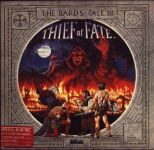
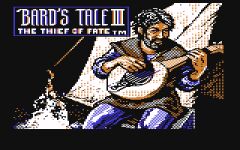
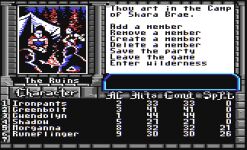
The entire Bards Tale series was great, but I only ever made it halfway through Bards Tale 2, and never even made it through Bards Tale 1's first dungeon.
The Bards Tale games, Bards Tale 2 in particular, was extremely difficult. At least the third one was managable. I loved mapping out the huge dungeons, trying to deal with the maddening "spinners", and trying to figure out what the heck these magic items did. (I've got a 'Spanner' - what's that?)
What made Bards Tale 3 better overall for me was the music, the world-hopping, and the ability to keep a steady pace. Since I was constantly progressing in the game, I never got bored. There were always new spells to cast, new creatures to summon, and new monsters to fight.

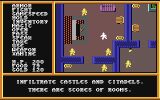
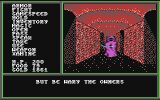
This is one of the games that I can't remember quite as clearly as I'd like, but I know I loved it.
Legend of Blacksilver was the sequel to a game called Legacy of the Ancients. The towns and overland views were top-down, in 2d, but the dungeons were presented in the same 80s-style 3d that was so common at the time. One of the things I loved about it were the occasional realtime "test of skill" challenges that you could enter in the temples in an attempt to increase your ability scores. If you did very badly, you could actually decrease your abilities.
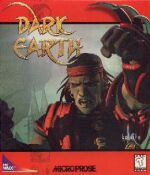
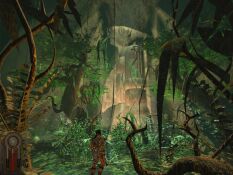
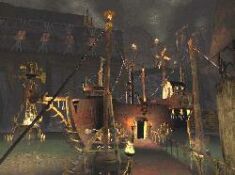
This is a game that may not appeal to everyone, but I love it. Dark Earth takes place in the distant future, after what I can only assume was World War 3. Guns exist, but are very rare, and are viewed as essentially magical.
The gameplay is very much similar to Resident Evil, or Syberia, but there is plenty of combat - mostly melee. Interactions with other players can be affected by changing your mood. You have two moods - dark and bright. Toggling your mood affects whether you'll speak to someone in a friendly way, or mean/threatening. Both have definate uses, and there are often multiple ways to handle a situation.
The game's graphics are incredible, especially for a game published in 1997. One of my favorite parts was when you had to play a board game named "yong" against another character. Many people viewed this as a tedious chore, and posted 'solutions' to the game online, but I played more often that necessary. Yong was one of the best parts in the game - I wish I remembered the rules.